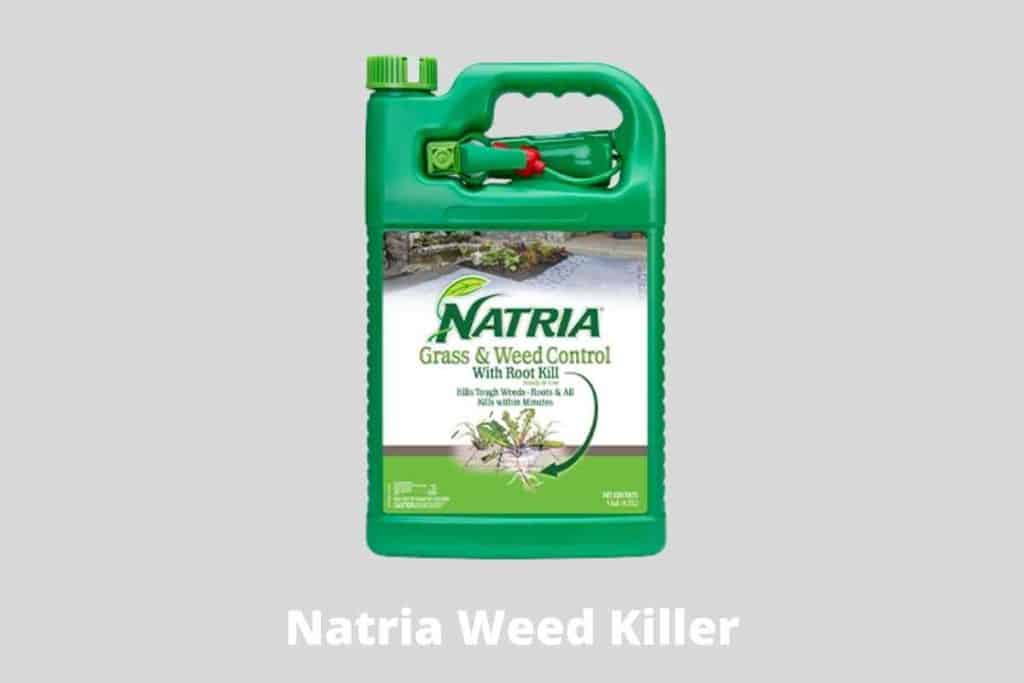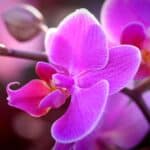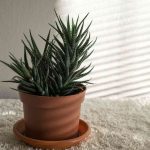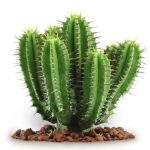We independently research and recommend the best products here. This article contains affiliate links. If you make a purchase after clicking on a link, we may earn a little commission at no extra cost to you.
Natria is an excellent alternative to nasty herbicides like glyphosate. As a weed killer, natria does an excellent job of eliminating weed without messing up the entire garden. But is natria weed killer organic?
No! Although natural, natria weed killer is not organic! Natria contains Maleic Hydrazide, a synthetic compound that contributes to the strength and the weed-killing capacity of natria.
Generally speaking, natria isn't more organic than many market-available weed killers. It is broadly marketed and widely distributed as a natural alternative to most available weed killers in the market.
Since Industrial herbicides are poisonous and too strong, most people are not fans of them and wouldn't use a potent weed killer for their homefront garden. But natria is mild and can function well in that environment.
Table of Contents
Is Natria Weed Killer Safe for Humans?
Natria is proposed as a natural weed killer but has some features that make it unique and stand out from many of the other killer options available in the market today.
But is natria, by extension, safe for human use? Let's find out!
Natria contains ammoniated soap of fatty acid, Maleic hydrazide, and glyphosate. All of which makes it a suitable herbicide for garden and commercial use.
The natria is very effective and can be extensively used in gardens and close to home usage, unlike many of the available commercial herbicides.
Maleic hydrazide is a chemical growth regulator for creeper plants like potatoes. It essentially limits their growth or induces dormancy in plants where it is used.
In non-vertebrate, birds, honeybees, and fish, natria has no toxicity effect or shows no toxicity. But it's pretty different from mammals as it has a mild side effect and risk to humans, especially when it gets injected.
What is the Importance of Natria Weed Killer?

As we've emphasized over and over again, the natria weed killer is quite effective when it comes to inhibiting the growth of weeds around your garden.
But there are some things special to natria which gives the weed killer its unique ability. The natria can be known as a natural alternative to industrial herbicides.
While it can keep creeper weed plants from growing, it can also reduce the damage to your lawn and home front gardens.
Don't you want that in contrast to industrial weed killer that kills almost every plant it touches? Well, every gardener does, and so should you.
Natria can kill even the toughest of weeds, you know, once and for all because it penetrates deep into the roots of these plants and eliminates them from the ground up.
And it does all of that in less than 24hours of applications. Since it is very potent and also a non-selective herbicide, it will kill any weed or plant that it touches. So, careful application is advised since the weed always needs contact to react with plants.
Frequently Asked Questions: Is Natria Weed Killer Organic?
Is Natria Non-toxic?
Yes, it is. Unlike most herbicides, natria is a non-toxic herbicide that can control different sorts of pests, weeds, plant diseases, and grasses. It's an EPA registered product that authoritates its use in farmland and in-house gardens. It's deemed non-toxic; hence, it's very safe for use.
Is Natria all Natural?
Natria has the most benefit in one organic herbicide. It is handy, has many capabilities, and has a good reputation for killing tough weeds. But amazingly, a powerful herbicide that is made from very natural ingredients.
Does Natria weed killer contain glyphosate?
Natria weed killer does not contain glyphosate. Generally, glyphosate can kill any plant by preventing plants from making specific proteins. It wouldn't make Natria very environmentally friendly to have it as a part of its ingredients.
Is Natria environmentally friendly?
Yes, it is! Since most of the ingredients for making the Natria herbicide are natural, it's only fair to assume that natria is environmentally friendly. But the assumption is not enough. The fact is that it contains ammoniated soap which is an environmentally friendly element just like every other component of natria.
Is Natria safe for women and pets?
Natria is exceptionally safe for everybody. But we can't say the same for pets or women who inject it. It's advised to keep your distance from the garden until after 2 hours of application.
Related Posts:
- How to Get Rid of Pokeweed
- Best Weed Killers Safe For Dogs
- Best Weed Killers For Bermuda Grass
- Is Bugleweed Toxic To Cats?
- Grandpa’s Weeder Vs Fiskars




